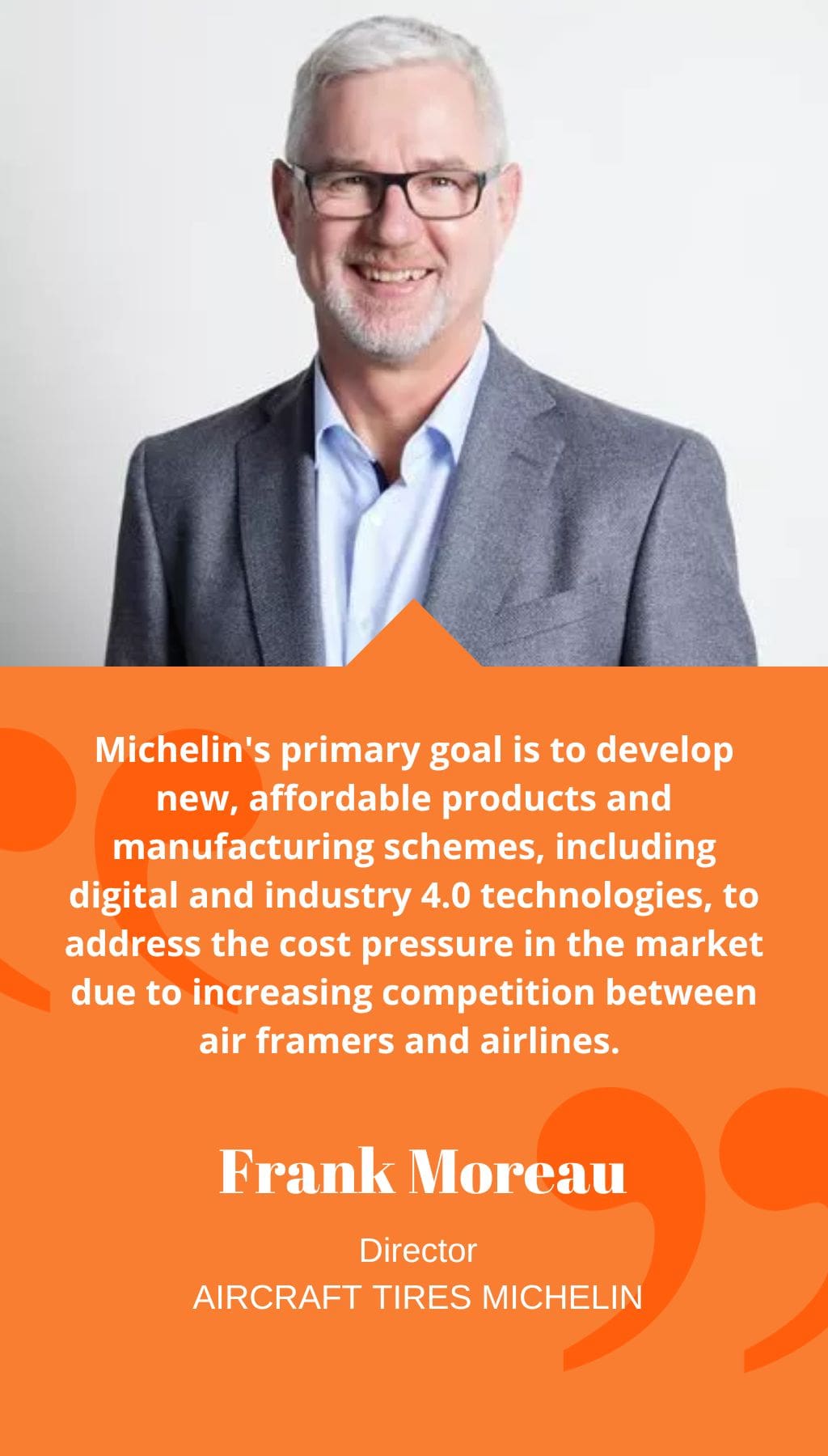
- France | 24 October 2018

Can you please provide an overview of Michelin’s involvement in the aerospace sector and its operations in this field?
Michelin is a renowned global organization with a rich history of working in the aerospace industry. It has been in this field for several decades and has developed a strong reputation for innovative solutions and cutting-edge technologies. In 1981, Michelin introduced the world’s first radial tire in the aircraft tire manufacturing industry, and since then, it has continued to push the boundaries of tire design and production. With design teams and factories located in France, the US, and Thailand, Michelin is a prominent player in all aspects of tire design and manufacturing in the aerospace sector.
Last year, Michelin and Safran announced their joint project, PresSense, at the Paris Air Show. Can you provide us with more details about the project’s purpose and its development?
PresSense is a pioneering project aimed at revolutionizing the way aircraft tire pressure is measured. Michelin and Safran recognized that aircraft tires increase in temperature after landing, but tire pressure can only be accurately tested and measured when the tire is cold. To address this, they decided to develop a method of measuring temperature and pressure simultaneously. The project involves embedding electric sensors within the tire itself to measure a far greater amount of data than previous methods of tire pressure testing. This enables Michelin to determine the tire pressure as soon as the aircraft lands and use algorithms to calculate the exact pressure when the wheel has cooled down.
What are Michelin’s primary objectives for the next three to five years?
Michelin recognizes that the aerospace industry is currently experiencing a period of organic structural growth, with the global number of aircraft expected to double in the next twenty years. With Boeing and Airbus both facing massive backlogs, the organization knows that it must be highly agile to meet the increasing demand. Michelin’s primary goal is to develop new, affordable products and manufacturing schemes, including digital and industry 4.0 technologies, to address the cost pressure in the market due to increasing competition between air framers and airlines. Michelin is committed to developing specific R&D initiatives, such as new equipment and partnership programs, in line with its Michelin Economy Circular strategy, which focuses on Reduce, Reuse, Recycle, and Renew principles. The company is also looking at the longer-term horizon, exploring opportunities for sustainable growth through innovative initiatives, such as its partnership with Safran.














